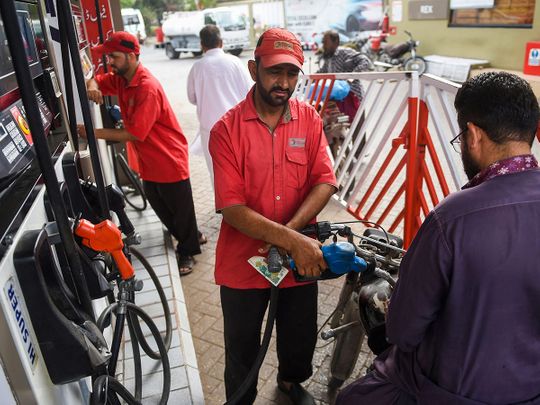
Islamabad: Petrol and diesel prices have reached a record high in Pakistan after the government announced a 20 per cent increase.
Prime Minister Shehbaz Sharif’s government announced to end the subsidies on petroleum products by the former government to address the economic issues and revive the International Monetary Fund (IMF) programme.
With the fresh hike, the new price of petrol will be Rs179.88 per litre. The new price of diesel is Rs174.15, kerosene oil Rs155.56 and light diesel Rs148.31.
This is the highest-ever one-time price hike of all petroleum products in the country. On Thursday night, there were long lines of drivers and bikers at filling stations a few hours before the new prices were to be implemented.
Difficult decision
Finance Minister Miftah Ismail defended the surge in prices saying the government had no option but to raise the prices. Ismail said it was a difficult decision for the new government but in the best interest of the country saying “we cannot let the country drift towards default.” He expressed hope the price hike would help stabilize the markets and bring some “balance within the economy.”
The finance minister said that the government was committed to “reviving the IMF programme” and putting the country back on a “sustainable growth path.” The government is also committed to reducing the overall budget deficit in the fiscal year 2023.
Revive IMF programme
The fuel price hike comes after IMF emphasized the importance of rolling back fuel and electricity subsidies to revive the funding programme. The Pakistani finance team held discussions with the IMF mission in Doha, Qatar, during May 18-25 but failed to reach an agreement due to subsidies on petroleum products. The IMF said that “considerable progress” had been made to address high inflation and fiscal and current account deficits in the talks, but underlined the urgency of removing fuel and energy subsidies to get back on track. Pakistan entered the $6 billion 39-month funding programme with the IMF in July 2019 and has received about half of the funds so far.












